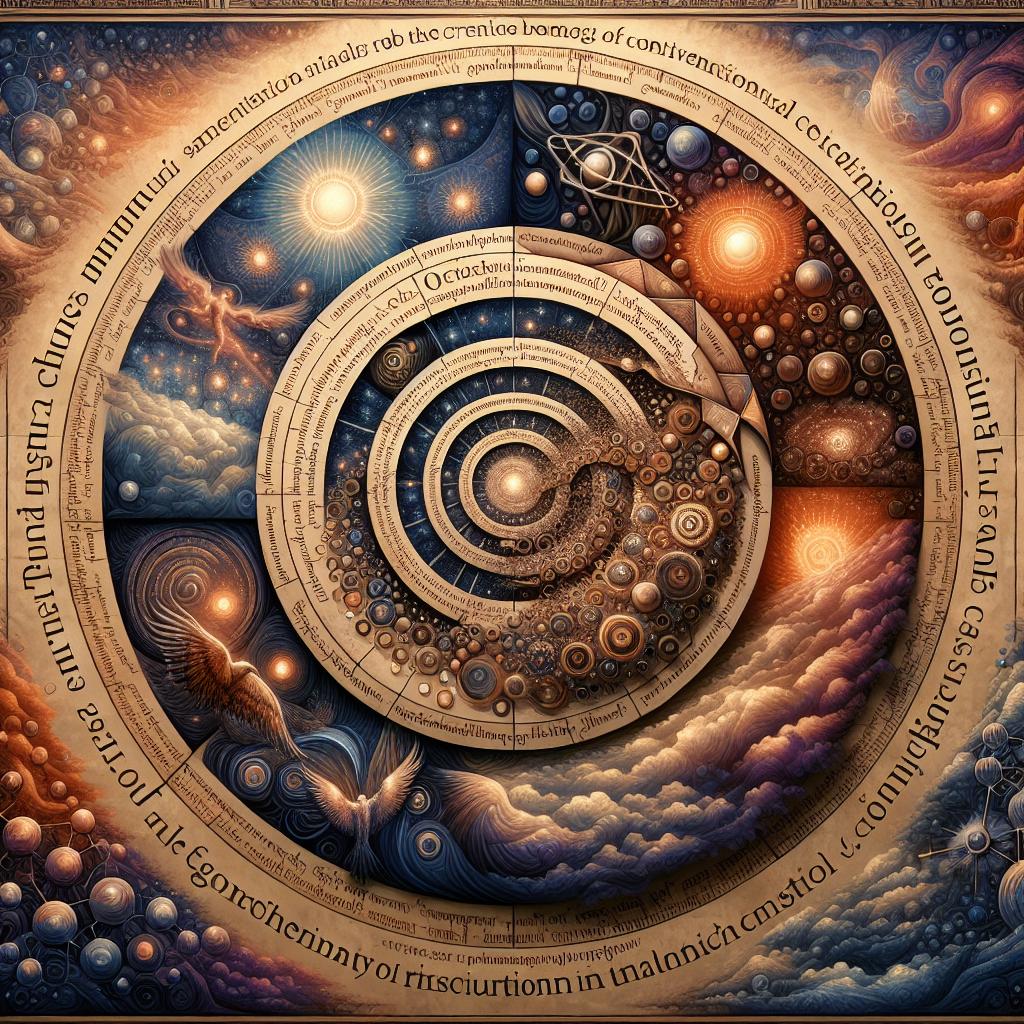
Unveiling The Divine Design: Genesis According to Evolution Explained
Published: 05 June 2024
Genesis According to Evolution
Many Christians today believe in the compatibility of evolution and the biblical account of Genesis. They propose that God used processes such as the big bang, stellar evolution, and gradual geological changes over millions of years to create the world. Some even suggest that God employed neo-Darwinian evolution to bring about different life forms. These perspectives are known as progressive creationism and theistic evolution, respectively.
Critics argue that the ancient Hebrews, to whom Genesis was written, would not have comprehended sophisticated scientific theories. They contend that Genesis used simple language to convey truths about creation that were understandable to a pre-scientific audience.
However, upon closer examination, this argument falls short. Let us now reimagine how God could have communicated creation if He had used evolution:
-
Creation of the Universe: "When God began to create the heavens and the earth, He expanded a small grain of dust and said, 'Let there be light.' From this grain of dust, over many great ages, He formed stars, the sun, and eventually the earth and the moon."
-
Formation of Life: "The earth was initially hot and dry. But over time, God caused seas to emerge, and from the water, He formed small creatures in the sea. These creatures slowly transformed into fish, plants of the sea, creeping things, animals on land, and birds in the sky."
-
Extinction and Replacement: "Throughout countless ages, many creatures died and were no more. But new ones arose to take their place. There were terrors on land and in the sky as animals hunted and killed each other."
-
Creation of Man: "After further long ages, God said, 'Let us make man in our image.' God took a creature resembling a man but not quite one and breathed His spirit into it. This creature was transformed into a man named Adam. God also created a woman named Eve, and from this first pair, all people on earth descended."
-
The Flood: "After many generations, the people in Assyria became exceedingly wicked. God found only Noah to be righteous and decided to send a flood to destroy the sinful people. He instructed Noah to build an ark and save his family along with animals. The flood wiped out all other people in Assyria, while birds returned after the waters receded."
-
Division of Languages: "Noah and his family multiplied and eventually divided into different languages and tribes, spreading across the earth from the land around the Tigris and Euphrates rivers."
If God had created the universe over millions of years and flooded only a localized area, His communication in Genesis would have been incredibly misleading. However, if we consider the possibility that God created everything in six literal days around 6,000 years ago, cursed creation after Adam's sin, judged the world with a global flood during Noah's time, and supernaturally caused language diversification at the Tower of Babel, then Genesis is remarkably clear.
God has spoken through His Word. The question is whether we will believe what it plainly says or allow evolutionary reinterpretations to distort its message.
Why This Matters
Understanding the true nature of Genesis is crucial because it shapes our understanding of God's character, the origin of sin, and the need for salvation through Jesus Christ. If Genesis is undermined or reinterpreted to fit evolutionary ideas, it can erode our confidence in Scripture as a whole.
Think About It
Consider the implications of accepting an evolutionary interpretation of Genesis. How might it impact your view of God's sovereignty, the trustworthiness of Scripture, and the foundation of your faith? Reflect on how aligning with a young-earth creationist perspective can provide a more consistent understanding of God's Word.
